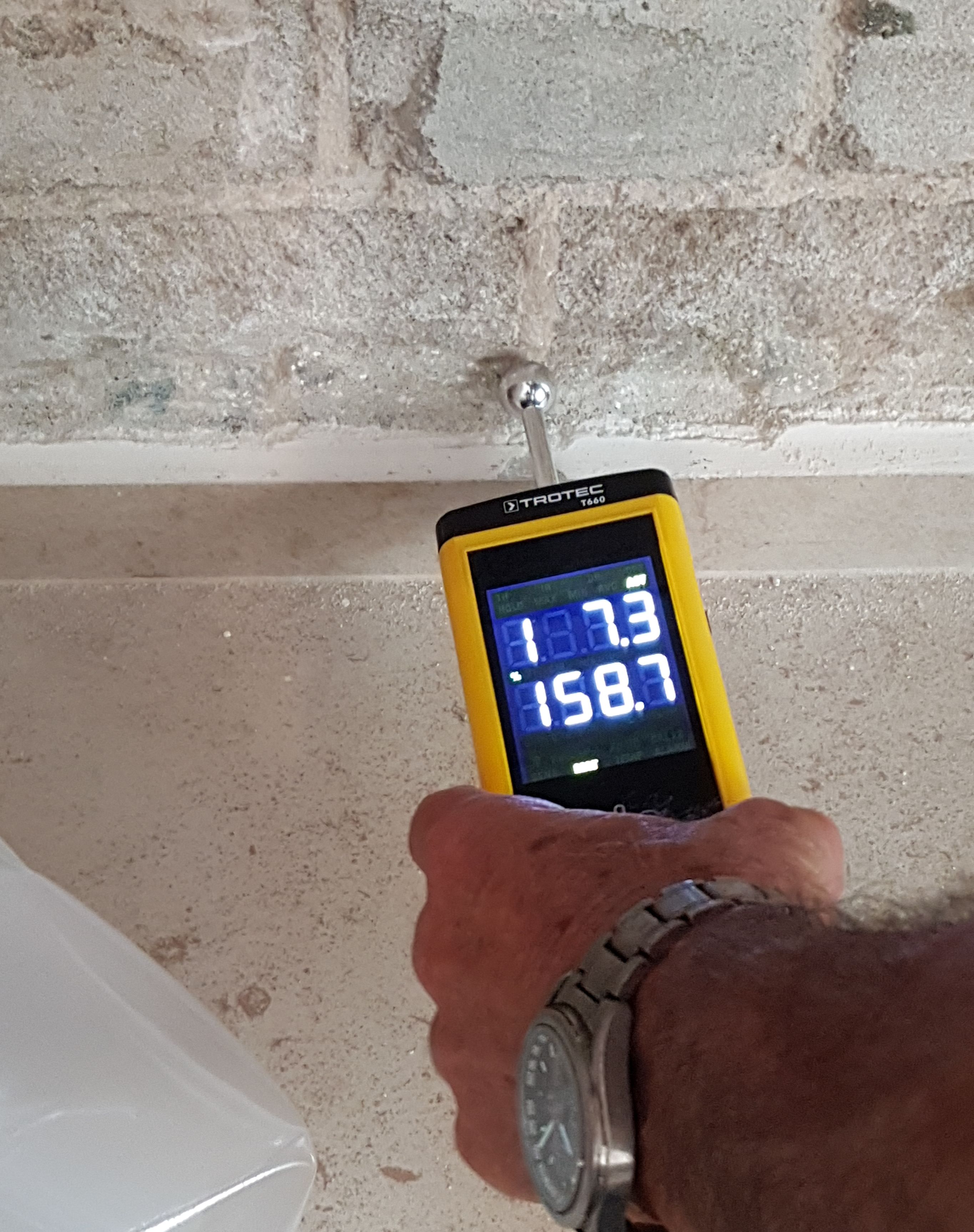The Ultimate Overview to Moisture Meters: A Comprehensive Review and How They Can Save You Cash
In the world of structure upkeep, building and construction, and various industries, the importance of properly determining wetness levels can not be overemphasized. Dampness meters work as crucial devices in finding and checking moisture web content in materials, assisting in stopping costly problems and ensuring the top quality of items. Understanding the subtleties of various sorts of moisture meters, their applications, and the potential cost-saving benefits they supply can be a game-changer for specialists and companies alike. Uncovering exactly how these gadgets can not just improve procedures but additionally add to monetary cost savings is a journey worth getting started on.
Types of Wetness Meters
One usual kind is the pin-type dampness meter, which measures the electrical resistance between two pins placed right into a product. Pinless wetness meters, on the other hand, usage electromagnetic sensor plates to check a larger area without causing damage to the product's surface area.

Additionally, there are also specialized wetness meters developed for certain products like soil, grain, or hay. These meters offer accurate dampness readings customized to the special buildings of the material being tested. Infrared moisture meters gauge the thermal residential properties of a product to identify its moisture web content non-invasively, making them valuable for applications where pin or pinless meters may not be appropriate. Comprehending the different kinds of dampness meters offered can assist markets choose the most suitable tool for their details moisture dimension needs.

Advantages of Using Dampness Meters
Dampness meters provide very useful advantages in properly examining and keeping an eye on moisture levels in varied materials and atmospheres (Moisture Meter). Among the primary benefits of utilizing dampness meters is the avoidance of prospective damage brought on by excess wetness. By finding and dealing with high wetness degrees at an early stage, dampness meters aid to avoid mold growth, rot, and structural damages in buildings, saving both time and money on repair services. Furthermore, dampness meters help in making certain the top quality of products throughout building and construction or production procedures. By precisely measuring moisture content, these devices aid keep the honesty of timber, drywall, concrete, and various other materials, decreasing the danger of failures or defects.
Furthermore, making use of wetness meters can lead to boosted energy efficiency. In agricultural setups, dampness meters play a critical duty in enhancing crop returns by allowing farmers to check soil moisture levels and make educated irrigation decisions.
Exactly How to Choose the Right Moisture Meter
Choosing the proper dampness meter entails considering key factors such as product compatibility, dimension range, and calibration accuracy. When selecting a wetness meter, it's vital to guarantee that the meter is appropriate for the particular material you will be testing. Different products have differing electric homes that can impact dampness analyses, so picking a best site meter designed for your material is important for precise outcomes. In addition, take into consideration the measurement series of the wetness meter. Make sure that the meter can identify moisture levels within the range needed for your applications. Calibration precision is an additional crucial element to bear in mind. Opt for a wetness meter with trustworthy calibration to make certain consistent and precise analyses. Some meters may call for routine calibration changes, so recognizing the calibration procedure is crucial. By very carefully examining these aspects, you can choose a moisture meter that meets your needs and provides exact dampness dimensions for your jobs.
Appropriate Techniques for Dampness Meter Use

Price Cost Savings Via Moisture Meter Applications
Exactly how can the tactical application of wetness meters lead to significant expense savings throughout various markets? In the agriculture market, moisture meters help in establishing the ideal time for collecting crops, protecting against over-drying or excess dampness that can affect the last product's high quality.
Similarly, in building, dampness meters help protect against costly problems by spotting wetness degrees in building products, such as timber or concrete, which can result in architectural concerns if not attended to like this promptly. By determining trouble areas early, professionals can take rehabilitative measures to prevent considerable repair work or substitutes, ultimately saving money and time.
Furthermore, in the food processing sector, wetness meters are essential for keeping an eye on product top quality and making sure compliance with safety and security guidelines. By precisely gauging wetness material in foodstuff, makers can protect against putridity, preserve quality, and reduce waste, leading to considerable price financial savings. Overall, the strategic application of wetness meters is a useful financial investment that can lead to considerable expense decreases and boosted efficiency across different markets.
Verdict
In final thought, moisture meters are beneficial tools for measuring and identifying wetness degrees in different materials. By using the right wetness meter and following appropriate techniques, individuals can effectively stop costly problems triggered by excess dampness.
Moisture meters offer as important devices in discovering and keeping track of moisture web content in materials, helping in protecting against expensive problems and guaranteeing the high quality of Get the facts items. Infrared moisture meters determine the thermal residential properties of a product to determine its wetness web content non-invasively, making them useful for applications where pin or pinless meters may not be ideal.Dampness meters provide vital benefits in accurately keeping track of and examining dampness degrees in diverse materials and environments. In agricultural setups, dampness meters play an essential function in maximizing plant returns by enabling farmers to keep an eye on soil dampness levels and make notified watering choices.In conclusion, moisture meters are important tools for determining and finding moisture degrees in numerous products.